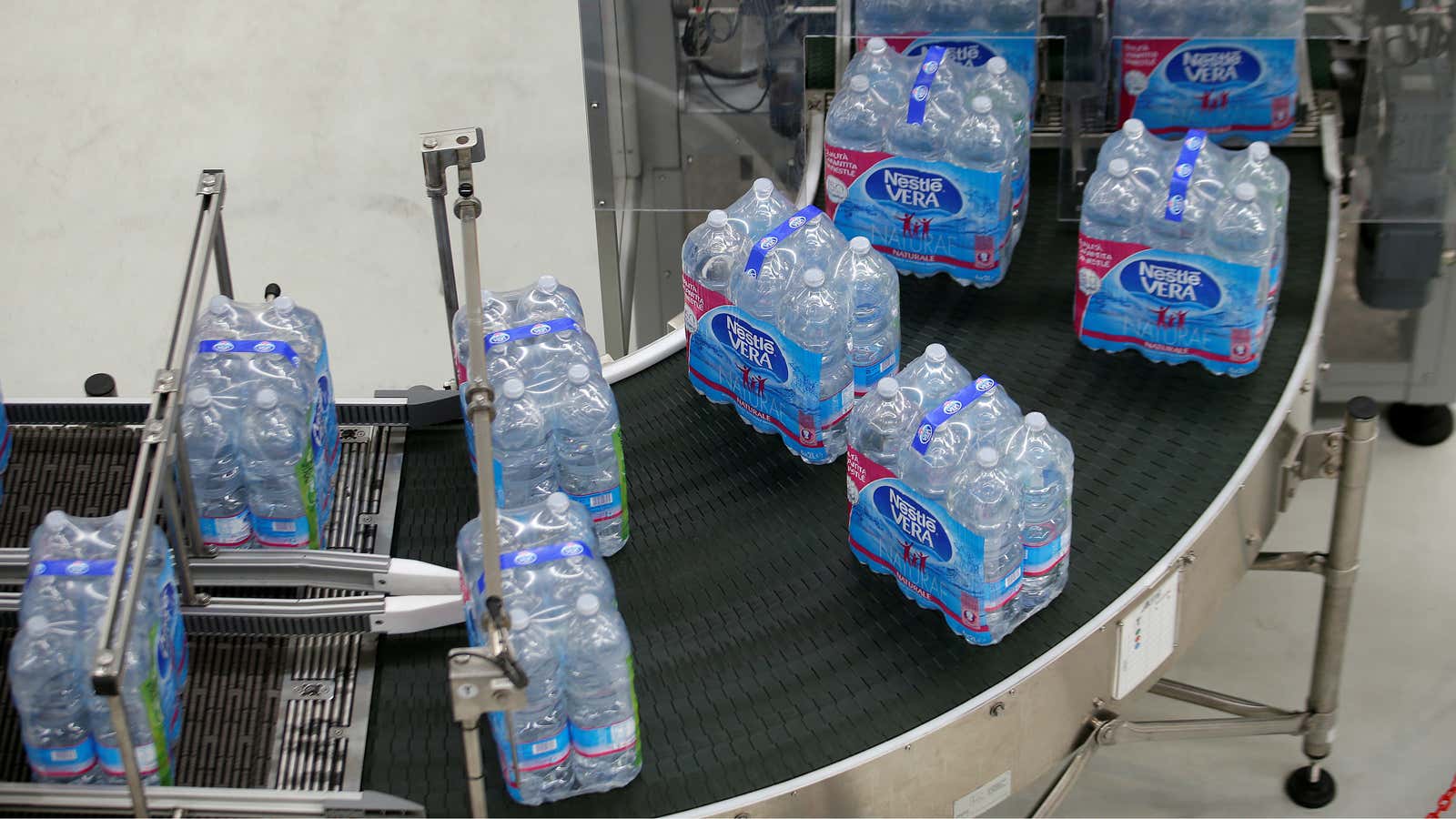The world’s largest bottler of water is staring down opposition in Michigan, and for no especially glaring fault of its own.
For years, Nestlé, the multibillion-dollar Swiss food giant, has extracted water from the ground in the Great Lakes state to then bottle and sell for a profit. But this year the company has run into more friction than usual over a request to pump more water from a well that sits about 100 miles from Flint, a city that has been without clean drinking water for months.
Nestlé’s arrangement to pump water and Flint’s own drinking water crisis may have nothing to do with one another—but the juxtaposition of big-business profits next to such a marked American failure to respond to one of its own city’s access to clean water is undeniably ugly.
The situation raises the prospect of a renewed debate about how the finances of water should be handled when it is sold as a commodity.
That a company based in Switzerland wants to stick a bigger straw into Michigan’s groundwater supply for a relatively nominal fee (a $5,000 application cost and a yearly $200 water-use reporting fee), and then make millions of dollars in profit off it, is striking while contrasted with conditions in Flint. The state of Michigan is in court fighting against the expense of delivering safe, bottled water door-to-door in the city.
In April, Nestlé was denied a zoning permit to construct a pumping-plant booster at a well in a town called White Pines. It was hoping to double its pumping to nearly 400 gallons per minute and plans to appeal.
Some have started to question whether Michigan is owed a chunk of the fortune bottling companies amass when they sell that otherwise priceless natural resource pulled from the ground. The pros and cons of such a debate aren’t straightforward.
One thing is undeniable, the business of bottled water is big. In 2013, the global market was about $157 billion. By 2020, that number is expected to skyrocket to $280 billion, according to The Guardian. In the US, the industry pulls more than $21 billion per year, data from Euromonitor shows. Just under a quarter of those sales belong to Nestlé, the multi-billion dollar food giant that is the world’s largest bottler of water.
And the company appears to know why the issue is raising eyebrows.
“Water is a passionate issue,” the company’s chief sustainability officer for the Nestlé’s North American water business told the Christian Science Monitor. “People make decisions based on their data and their knowledge, and they make decisions based on passion and their emotional responses.”
States often impose royalties on the extraction of earthly goods such as oil, gold, and other minerals, but there are very defined boons and drawbacks when applying those same royalties to water—one of the most basic natural resources. Theoretically, taxing companies for pumping water from the ground by volume would incentivize efficiency, and would serve an economic interest to people living near the active wells. But then, water is also a necessary component of human survival, and a moral argument exists that it should remain free (tap-water bills charge for water treatment, not the resource itself).
Also, critics have argued that not all commercial uses of water are equal. Is a farmer paying a small access fee for millions of gallons to water crops inherently different from a company paying the same fee to sell bottled water? Defining that difference in codified legal terms wouldn’t be easy, but as long as Flint is hobbled by its broken water infrastructure, companies such as Nestlé are going to have a devil of a time drawing sympathy.
